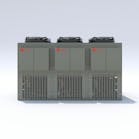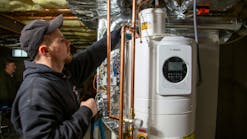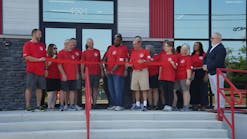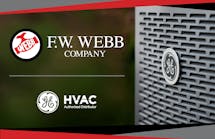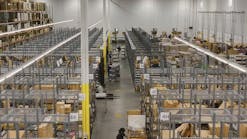During a recent drive in Southeast Pennsylvania, I listened to a Philadelphia talk-radio host mention a recent Elton John concert. It was a lively talk-radio show where the host engaged his listeners in a dialogue about whether Elton John should play a concert drawn from his 1970s classic albums. Callers phoned in their favorite Elton John albums, and when someone mentioned the “Madman Across the Water” album, I immediately had the urge to hear it.
So I selected that album on my iPod and played “Madman Across the Water” in its entirety through my car stereo. As an old-school man in my mid-50s, I admit that I have become accustomed to immediate gratification. When I want something – I want it now. And when I get it now – I feel great!
A customer’s need for instant gratification is ever-present and visible in subtle behaviors. Contractors who visit their local supply house to order parts and materials expect to be satisfied quickly and easily. This expectation places a responsibility on the counter salesperson to be efficient, knowledgeable and friendly. These positive attributes make it easy for a customer to buy. The absence of the aforementioned behaviors results in an attitude of “sales prevention” mostly exhibited when a counter salesperson lacks tenacity.
As a world-class behavior, tenacity means that a counter salesperson must do whatever it takes to answer a question, research a special part or expedite an order. Tenacity is behavior best learned by example and this puts the burden on the supply house manager to demonstrate how to do it– day in and day out – and then expect similar behavior from counter salespeople.
Another vital aspect of establishing expectations occurs when a supply house manager explains how behaviors affect the company as a whole. An employee’s enthusiasm and commitment to doing their job well comes from knowing that their performance has a positive effect on the company’s success. With an understanding of the big picture, an employee sees how their tenacity connects with the work of others. This broad perspective helps avoid the narrow view that reiterates, “These few tasks are my job, and that’s all I need to know.” Employees can’t collaborate and link their efforts to larger company goals if they can’t see past a single task or set of responsibilities.
Good managers also understand the importance of establishing mutually agreed upon measurable criteria. Employees can’t hit the bull’s-eye unless they can see the target. As obvious as this may seem, many managers often neglect specifying performance criteria with their employees. Explicitly determining what is needed, when it is needed, and how much, prevents the second-guessing that commonly plagues many manager-employee relationships. It helps the employee visualize what success would look like. With these performance criteria in mind, employees can also avoid falling prey to “performance anxiety.” During customer contact, a manager does not want a counter professional wondering if what they are doing is right.
The biggest achieved benefit from the correct management infrastructure is customer satisfaction. When you satisfy a customer’s subtle instant gratification demands, they feel great and keep coming back for more.
About the author:
Steve Coscia helps HVACR companies make more money through greater customer retention, improved upselling and reduced on-the-job stress. He is the author of numerous best-selling books, including the HVAC Customer Service Handbook and The Trade Technician’s Soft Skills Manual. To learn more about Steve Coscia go to www.HVACcustomerservice.com or contact Steve Coscia at 610-853-9836 or [email protected].
